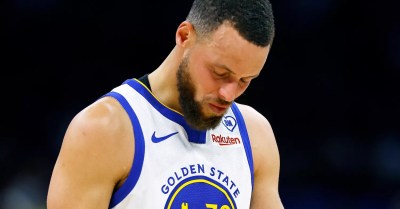University of Iowa senior point guard Caitlin Clark has become a major focal point in the sports world, as the NCAA Division I’s all-time leading scorer aims to guide the Hawkeyes to their inaugural national title in men’s or women’s basketball.
Acknowledged as one of the premier women’s college basketball players, a championship would solidify Clark’s status as an iconic figure in the sport.
With her unparalleled expertise, Clark, a driven 22-year-old, occasionally displays intense on-court emotions, directed at opponents, referees, fans, and coaches.
However, Clark’s demeanor has sparked criticism from certain segments of sports enthusiasts. A viral tweet labeled her behavior in this year’s tournament as “disappointing,” while another media outlet criticized her “constant complaining and whining,” suggesting that “America is beginning to notice.”
RELATED: Hawks Announcer Rips Caitlin Clark While Commenting on Jayson Tatum
Even NBA broadcasters have taken aim at Clark, drawing parallels to established male athletes known for similar behavior, such as LeBron James, Tom Brady, and Luka Doncic.
Yet, Clark’s conduct is contextualized by the unique pressures she faces as a female athlete. As the present and future of women’s basketball, she endures immense scrutiny and expectations, with analysts forecasting her potential financial impact on the WNBA.
In addition, Clark’s star status in basketball translates to a certain level of preferential treatment on the court, a common occurrence for top-tier athletes.
Critics have pointed out instances of Clark’s father urging her to temper her emotions during games, but such familial dynamics are customary in high-stakes sporting events.
Ultimately, perhaps it’s best to allow Clark to pursue greatness on her own terms and let her talents speak for themselves without undue scrutiny. After all, isn’t the essence of sports to let the players play and strive for excellence in their own unique ways?







